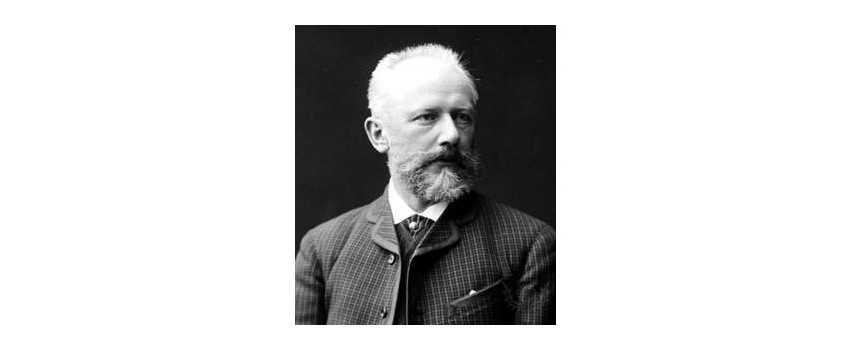Tchaikovsky Chanson Triste Op. 40 No 2 Violin (Schott)
Tchaikovsky, Chanson Triste Op. 40 No 2 Violin (Schott)...
Pyotr Ilyich Tchaikovsky, born in Russia on May 7, 1840, was a groundbreaking Romantic-era composer. He became the first Russian composer to leave a lasting impact on the global music scene. Tchaikovsky's compositions, such as the ballets Swan Lake and The Nutcracker, the 1812 Overture, his First Piano Concerto, multiple symphonies, and the opera Eugene Onegin, have become iconic pieces in the classical repertoire. Despite his musical prowess, Tchaikovsky faced numerous challenges in his career and personal life.
Early Life and Education
Tchaikovsky's journey towards musical greatness began when the opportunities for a musical career in Russia were limited. Born into a middle-class family, he received a traditional education and was initially destined for a career as a government servant. However, his passion for music led him to enrol in the fledgling Saint Petersburg Conservatory in 1862, where he would receive a Western-oriented education. This rigorous training set him apart from his contemporaries, including the nationalist composers known as The Five, with whom he had a tumultuous relationship.
Tchaikovsky's education at the conservatory allowed him to reconcile the Western musical principles he learned with the native Russian musical practices he had been exposed to since childhood. This fusion of influences resulted in a unique and distinctly Russian style defining his compositions.
Musical Style and Innovations
Tchaikovsky's music is characterized by its emotional intensity, lush melodies, and rich orchestration. He combined the grandeur of Western European compositions with the folk-inspired melodies and harmonies of Russian music, creating a style that resonated with worldwide audiences.
One of Tchaikovsky's notable innovations was his ability to infuse his music with a sense of Russian identity while adhering to the structures and forms of Western classical music. This allowed him to transcend the limitations of Russian classical music and garner international acclaim. Despite criticism from some who believed his music lacked intellectual depth, Tchaikovsky's ability to create emotionally powerful compositions solidified his place in musical history.
Professional Challenges and Personal Turmoil
Throughout his career, Tchaikovsky faced numerous professional challenges and personal struggles that shaped his music and life. The early separation from his mother and her subsequent death, as well as the loss of his close friend and colleague Nikolai Rubinstein, deeply affected him. Additionally, Tchaikovsky's personal life was marked by a series of failed relationships and internal conflicts, including his concealed homosexuality. These factors contributed to his psychological crises and bouts of sadness despite his many outstanding achievements.
Legacy and Impact
Tchaikovsky's music has stood the test of time and continues to captivate audiences worldwide. His ability to merge Russian and Western musical traditions created a new path for future composers, bridging the gap between musical cultures. Tchaikovsky's compositions have become staples in the classical repertoire and have inspired countless musicians and artists.
Despite the initial mixed reception from critics, Tchaikovsky's music transcended cultural barriers and prejudices, earning him recognition as one of the greatest composers of all time. His contributions to music have left an indelible mark on the classical genre, forever cementing his place in history.
Conclusion
Pyotr Ilyich Tchaikovsky's life and music exemplify the power of artistic expression and innovation. His ability to fuse Russian and Western musical traditions, emotional depth, and technical mastery revolutionized the classical music landscape. Tchaikovsky's compositions continue to inspire and move audiences, ensuring his legacy as one of the most influential composers in history.

Tchaikovsky, Chanson Triste Op. 40 No 2 Violin (Schott)...
Tchaikovsky Serenade Melancholique Op. 26 for Violin (Butorac)
Tchaikovsky Serenade Melancolique Op. 26 for Violin (Peters)
Tchaikovsky Souvenir d'un Lieu Cher for Violin (Faber)
Tchaikovsky Violin Concerto (Peters)
Tschaikowsky Sérénade mélancolique op. 26 (Henle)
Tchaikovsky Violin Concerto (Peters) EP3019B
Tchaikovsky Violin Concerto in D Op. 35, edited by *** David Oistrakh*** (Peters)
Schirmer's Library of Musical Classics Vol. 2117 for Violin and Piano.
Bruch, Concerto in G Minor, Op. 26.
Mendelssohn, Concerto in E Minor, Op. 64.
Tchaikovsky, Concerto in D Major, Op. 35.